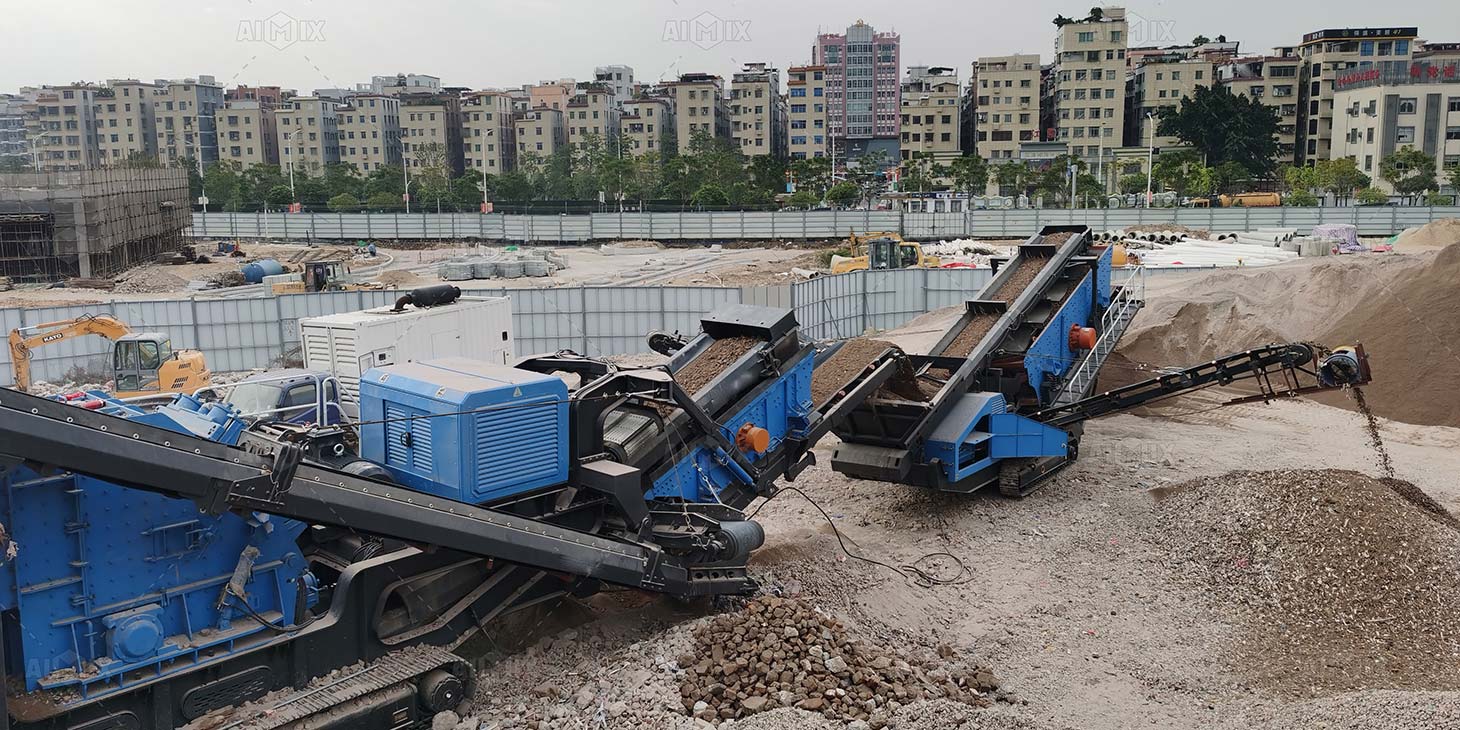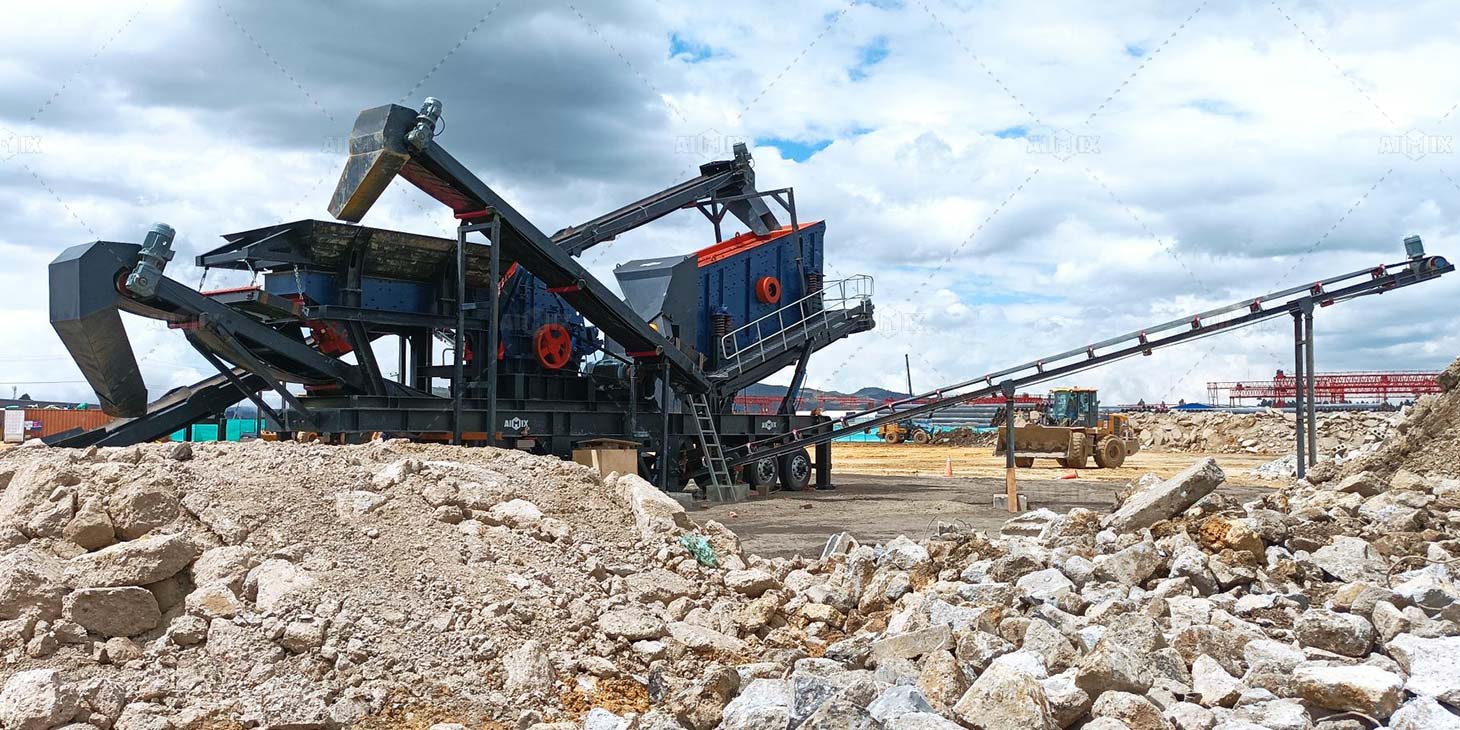The construction industry stands at an environmental crossroads, where the traditional practice of demolishing and discarding is rapidly giving way to circular economy principles. Mobile concrete crusher has emerged as the vanguard of this transformation, turning demolition sites into instant recycling centers with unprecedented efficiency. These agile machines don’t simply process waste—they redefine the very concept of construction debris, transforming what was once landfill-bound material into valuable, specification-grade aggregates. The implications for sustainable construction are profound, particularly as urban centers grapple with shrinking landfill capacity and tightening environmental regulations.
What makes modern mobile crushers truly revolutionary is their ability to deliver recycling solutions that are both ecologically sound and economically compelling. Unlike stationary recycling plants that require material transportation, these self-contained units bring the processing to the waste, slashing fuel consumption and carbon emissions while producing materials that can be immediately reused on-site. As green building certifications become mandatory in more jurisdictions, and as raw material costs continue to rise, mobile crushing technology is transitioning from optional equipment to essential infrastructure for forward-thinking contractors.

On-Site Recycling Revolution
Closed-Loop Material Processing
Contemporary mobile crushers create self-sufficient ecosystems at demolition sites. Concrete rubble undergoes primary crushing directly where buildings come down, with magnetic separators extracting rebar for construction waste recycling while aggregate conveyors sort material into precise size fractions. This integrated approach eliminates the wasteful cycle of loading, hauling, and unloading debris that characterizes traditional waste management.
Smart Sorting Technologies
Advanced models incorporate AI-powered vision systems that identify and separate contaminated material in real-time. These intelligent systems can distinguish between clean concrete, masonry debris, and unacceptable materials, ensuring the final product meets rigorous quality standards for structural reuse. Some units even feature automated quality reporting that documents each batch’s composition for compliance purposes.
Economic and Operational Advantages
Dual Revenue Stream Creation
Mobile crushers transform cost centers into profit centers—eliminating disposal fees while generating saleable products. Contractors report converting up to 90% of demolition waste into marketable aggregates, with some projects achieving complete cost recovery on equipment rental through avoided landfill costs and material sales.

Project Timeline Acceleration
The ability to process and reuse materials within the same work site dramatically compresses construction schedules. Base layers for new foundations can be created from old structures within hours rather than waiting for imported materials. This just-in-time production model proves particularly valuable in urban redevelopment projects with tight timelines and space constraints.
Environmental Impact Reduction
Carbon Footprint Minimization
By eliminating transportation requirements, mobile crushing reduces project-related emissions by 60-80% compared to conventional waste management. When powered by hybrid or electric systems, the environmental benefits compound further, creating near-zero-emission recycling solutions that align with stringent climate targets.
Natural Resource Conservation
Every ton of recycled concrete aggregate replaces a ton of virgin material, preserving quarry reserves and reducing landscape disruption. Modern mobile crushers produce aggregates that meet or exceed the quality of mined materials, enabling higher percentages of recycled content in new construction without performance compromises.
Technological Innovations Driving Adoption
Automated Grade Adjustment
Next-generation crushers feature self-adjusting parameters that optimize output based on feed material characteristics. Sensors continuously monitor product gradation, automatically adjusting mobile impact crusher settings to maintain consistent quality despite variations in input material—a game-changer for processing mixed demolition debris.
Remote Monitoring Capabilities
Fleet managers can now track real-time performance metrics across multiple job sites, receiving alerts for maintenance needs or production anomalies. This telematics integration maximizes equipment uptime while ensuring optimal recycling rates throughout project durations.
The rise of mobile concrete crushers represents more than equipment evolution—it signals a paradigm shift in construction philosophy. These machines are rewriting the rules of demolition, transforming waste from an inevitable byproduct into a strategic resource. As circular economy principles become codified in building regulations and as carbon accounting grows more stringent, mobile crushing technology will increasingly determine which contractors thrive in the new era of sustainable construction. The future of demolition isn’t about destruction—it’s about intelligent, immediate reconstruction at the molecular level.
